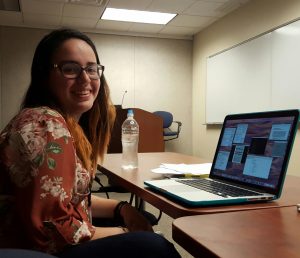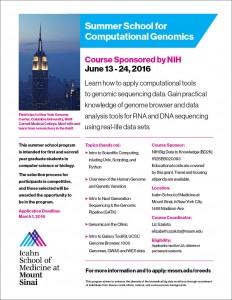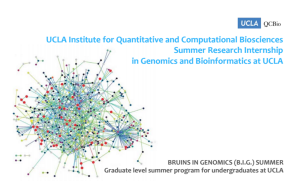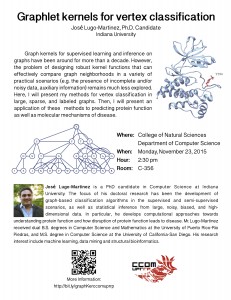Soy Anibal Tornes Blanco y estoy en el Programa Interdisciplinario en la facultad de Ciencias Naturales en la UPR-Río Piedras. Al concluir mi segundo año en la universidad, se me dio una gran oportunidad para explorar mis horizontes en el campo de la Biología Computacional con los líderes en este campo.
Actualmente formo parte de la iniciativa de Big Data to Knowledge (BD2K), impulsado por el National Institutes of Health (NIH). Gracias la colaboración de la Universidad de Puerto Rico-Rio Piedras (UPRRP) y University of Pittsburgh (UPitt) soy parte del Internship in Biomedical Research, Informatics, and Computer Science (iBRIC). Mi proyecto durante este verano ha sido desarrollar un modelo de clasificación para mejorar la capacidad predictiva de datos de relevancia en los Electronic Medical Records (EMR). La popularidad de los EMR en los últimos años ha crecido exponencialmente, sin embargo, los doctores se encuentran ante el “Information Overload”. Este fenómeno se debe a que como seres humanos, nuestra capacidad de reconocer patrones entre resultados de laboratorios es limitado y podría llevar a diagnósticos erróneos. Por tal razón desarrollamos el Learning EMR (LEMR) con el fin de enseñarle a un sistema como predecir posibles condiciones de importancia y asistir a los doctores en sus diagnósticos.
El verano ha sido muy retante, pero mucho más enriquecedor. Les exhorto a que soliciten a experiencias como estas para crecer como individuos tanto en un aspecto personal como laboral. Somos casi un equipo de fútbol de puertorriqueños y nunca pensé que seria de esta forma. Explora tus horizontes y sal de tu “Comfort Zone”.




